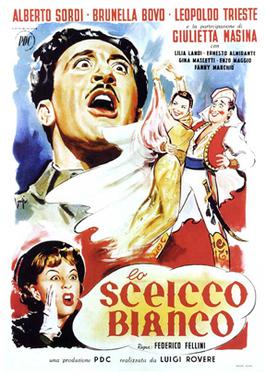A blog formerly known as Bookishness / By Charles Matthews
"Dazzled by so many and such marvelous inventions, the people of Macondo ... became indignant over the living images that the prosperous merchant Bruno Crespi projected in the theater with the lion-head ticket windows, for a character who had died and was buried in one film and for whose misfortune tears had been shed would reappear alive and transformed into an Arab in the next one. The audience, who had paid two cents apiece to share the difficulties of the actors, would not tolerate that outlandish fraud and they broke up the seats. The mayor, at the urging of Bruno Crespi, explained in a proclamation that the cinema was a machine of illusions that did not merit the emotional outbursts of the audience. With that discouraging explanation many ... decided not to return to the movies, considering that they already had too many troubles of their own to weep over the acted-out misfortunes of imaginary beings."--Gabriel García Márquez, One Hundred Years of Solitude
Search This Blog
Showing posts with label Leopoldo Trieste. Show all posts
Showing posts with label Leopoldo Trieste. Show all posts
Sunday, May 22, 2016
Cinema Paradiso (Giuseppe Tornatore, 1988)
Nostalgia isn't what it used to be. Will today's kids feel sentimental about the multiplexes in which they see movies, the way I feel about the Lyric and the Ritz in the small Mississippi town where I grew up, the places where I learned to love movies? The Ritz, built sometime in the 1930s, was the newer one, and it made a feint at elegance with some art-deco-style trimmings; the Lyric was, I was once told, originally a livery stable. The last I heard, the Ritz was derelict, and the Lyric had been converted into a venue for live music, catering to college students. So since I have my own lost cinema paradises, I should be the right audience for Cinema Paradiso, with its tribute to a bygone era of moviegoing. Tornatore's movie has some good things going on, including the performance of Philippe Noiret as Alfredo, and the wonderful rapport between Noiret and young Salvatore Cascio as Toto. Leopoldo Trieste's performance as the censorious Father Adelfio is also a delight, and ending the film with Alfredo's assemblage of the kissing scenes the priest made him excise is a masterly bit. But once Toto grows up to be the lovestruck teenager Salvatore (Marco Leonardi), I begin to lose interest, as Tornatore's screenplay lards on more and more sentimentality. I've seen it twice now, though I have yet to see the 173-minute "extended cut" of the film, in which, I am told, the grownup Salvatore (Jacques Perrin) is reunited with his teen love Elena (Agnese Nano), now grown up and played by Brigitte Fossey. Frankly, I don't much want to: The 155-minute version seems overlong as it is. Cinema Paradiso is beloved by many, and often makes lists of people's favorite foreign-language films, but I find it thin and conventional.
Saturday, December 5, 2015
The White Sheik (Federico Fellini, 1952)
This antic comedy was Fellini's first solo feature, based on a story by, believe it or not, Michelangelo Antonioni, collaborating with Fellini and Tullio Pinelli. Ennio Flaiano joined Fellini and Pinelli to write the screenplay, which is about a young couple from the provinces honeymooning in Rome. The husband, Ivan Cavalli (Leopoldo Trieste), doesn't know that his new wife, Wanda (Brunella Bovo), is an ardent fan of a fotoromanzo (a magazine serial that tells a story in photographs). When Wanda finds out that the serial, The White Sheik, is produced just around the corner from the hotel where she and Ivan are staying, she sneaks out in hopes of meeting Fernando Rivoli (Alberto Sordi), the actor who stars in the series as the sheik. Meanwhile, Ivan has scheduled their stay in Rome, including an audience with the pope, down to the minute, so when his family gathers to join the newlyweds and Ivan discovers that she has disappeared, madness ensues. Wanda finds herself swept up by the company photographing the next installment of the series and being wooed by the lecherous Rivoli himself. Ivan indulges in frantic attempts to cover up his wife's absence. Eventually he meets up with the prostitute Cabiria (Giulietta Masina), whose story Fellini will tell five years later in Nights of Cabiria (1957). For a first feature on his own, The White Sheik is remarkable, though it was quickly overshadowed by his next one, I Vitelloni (1953), which also featured Trieste in its cast. The White Sheik was only the second film for Trieste, who had appeared in a small role in Shamed (Giovanni Paolucci, 1947), for which he wrote the screenplay. He proved to be such an impressive character actor that he had a long career, with roles in such movies as Cinema Paradiso (Giuseppe Tornatore, 1988), The Name of the Rose (Jean-Jacques Annaud, 1986), and The Godfather: Part II (Francis Ford Coppola, 1974).
Subscribe to:
Comments (Atom)

